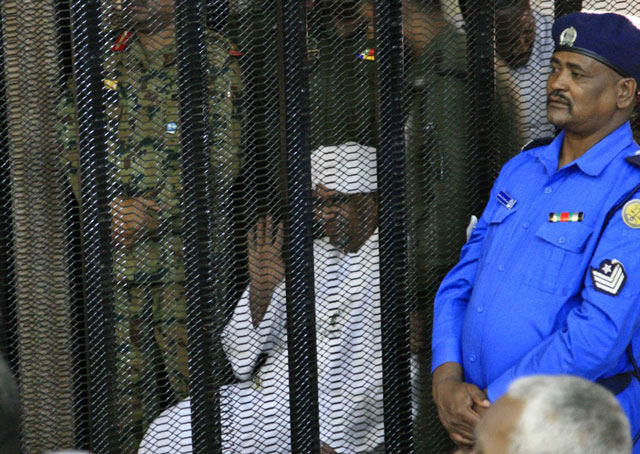
Three jailed Omar Bashir aides have virus
by The IndependentKhartoum, Sudan | AFP | Sudanese authorities said Wednesday that three former senior aides to ousted president Omar al-Bashir have caught the novel coronavirus in prison.
Former officials Ali Othman Taha, Ahmed Mohamed Haroun and Abdulreheem Mohamed Hussein have been held in Khartoum’s Kober prison since Bashir’s military ouster in April 2019 following mass protests against his rule.
All three are awaiting trial in Sudan for corruption and other offences.
Haroun and Hussein, who held top government positions under Bashir, are wanted by the International Criminal Court over their role in the Darfur conflict.
On Wednesday, Sudan’s public prosecution said the three men had tested positive for COVID-19, which has so far infected 4,146 people and killed 184 in the country.
Haroun has been in an isolation centre in northern Khartoum since late April, the statement said.
Prison authorities tested the others on May 20 and transferred Hussein to a hospital in Omdurman, Khartoum’s twin city, and Taha to an isolation centre in central Khartoum, according to the statement.
Taha served as vice president under Bashir between 1998-2013, and was previously Sudan’s foreign minister.
Hussein served in several positions including defence and interior minister. He was also assigned governor of Khartoum before Bashir’s ouster.
Haroun served as minister of state for the interior, minister of state for humanitarian affairs, and governor of the conflict-ridden South Kordofan.
All three were members of Bashir’s now-defunct National Congress Party.
The Hague-based ICC charged Bashir and others — including Haroun and Hussein — with war crimes and crimes against humanity in the Darfur conflict which erupted in 2003.
The fighting started when ethnic minority rebels took up arms against Bashir’s Arab-dominated government, accusing it of political and economic marginalisation of their region.
The United Nations estimates around 300,000 people were killed and 2.5 million others displaced in the conflict.
Human rights groups say Khartoum targeted suspected pro-rebel ethnic groups with a scorched earth policy, raping, killing, looting and burning villages.
In February, Sudan’s transitional authorities, who took power in August, agreed that Bashir and his aides should stand trial before the ICC.
Share on: WhatsApp